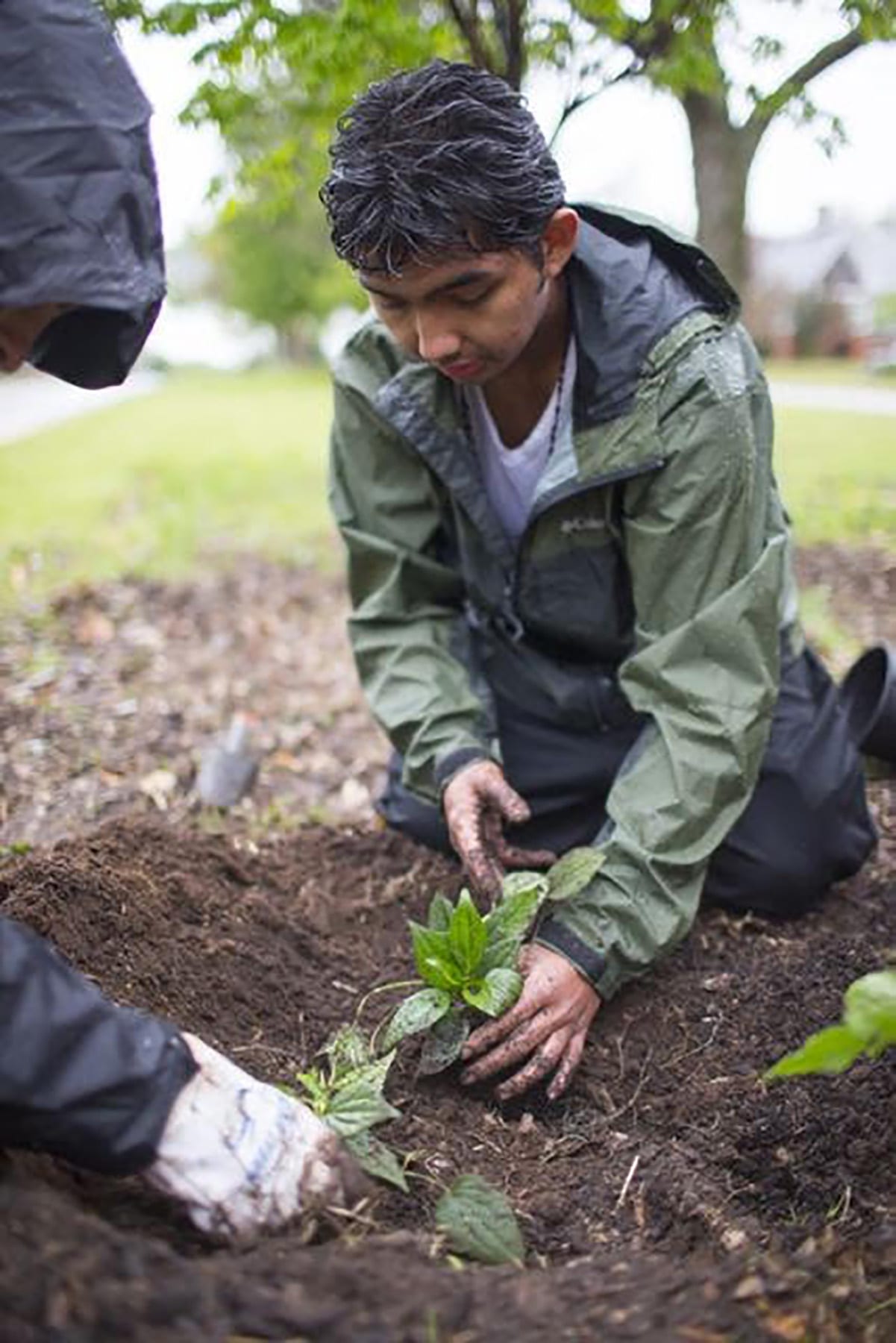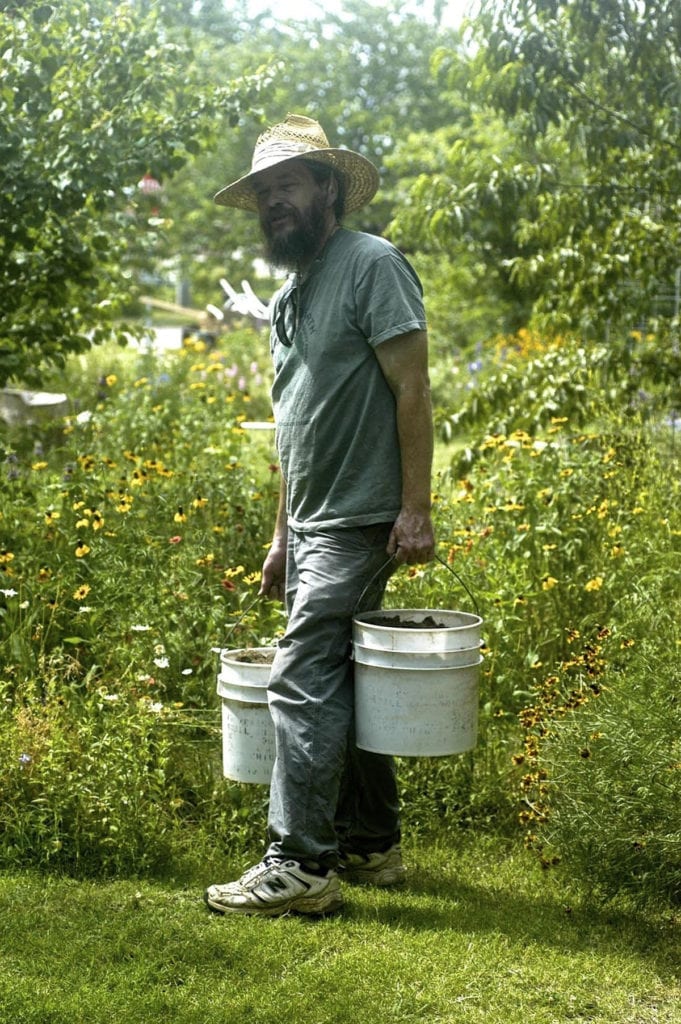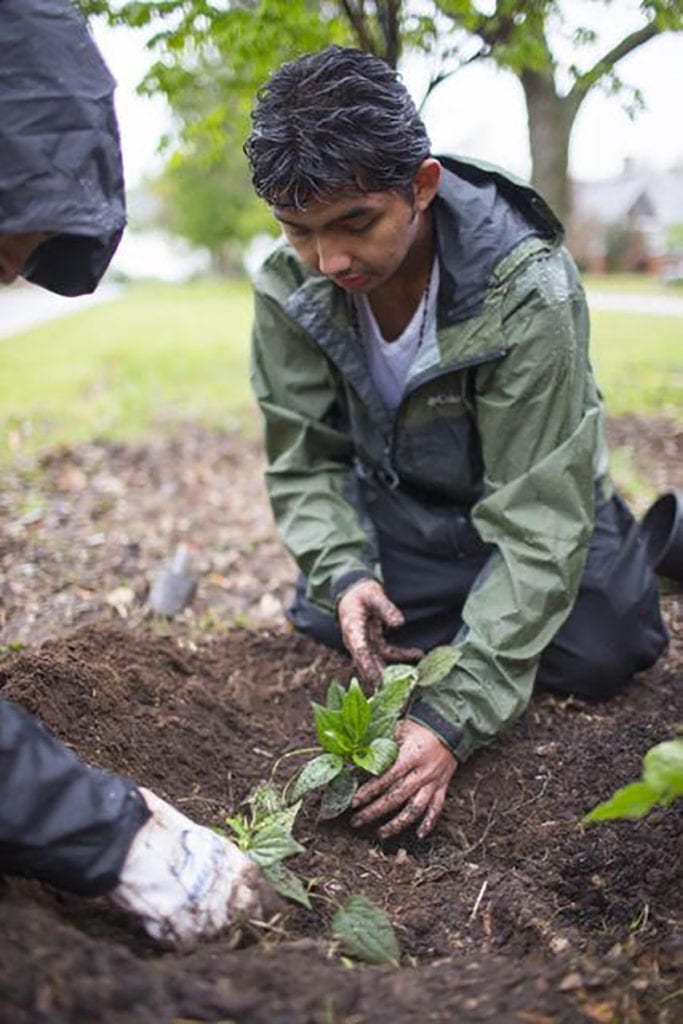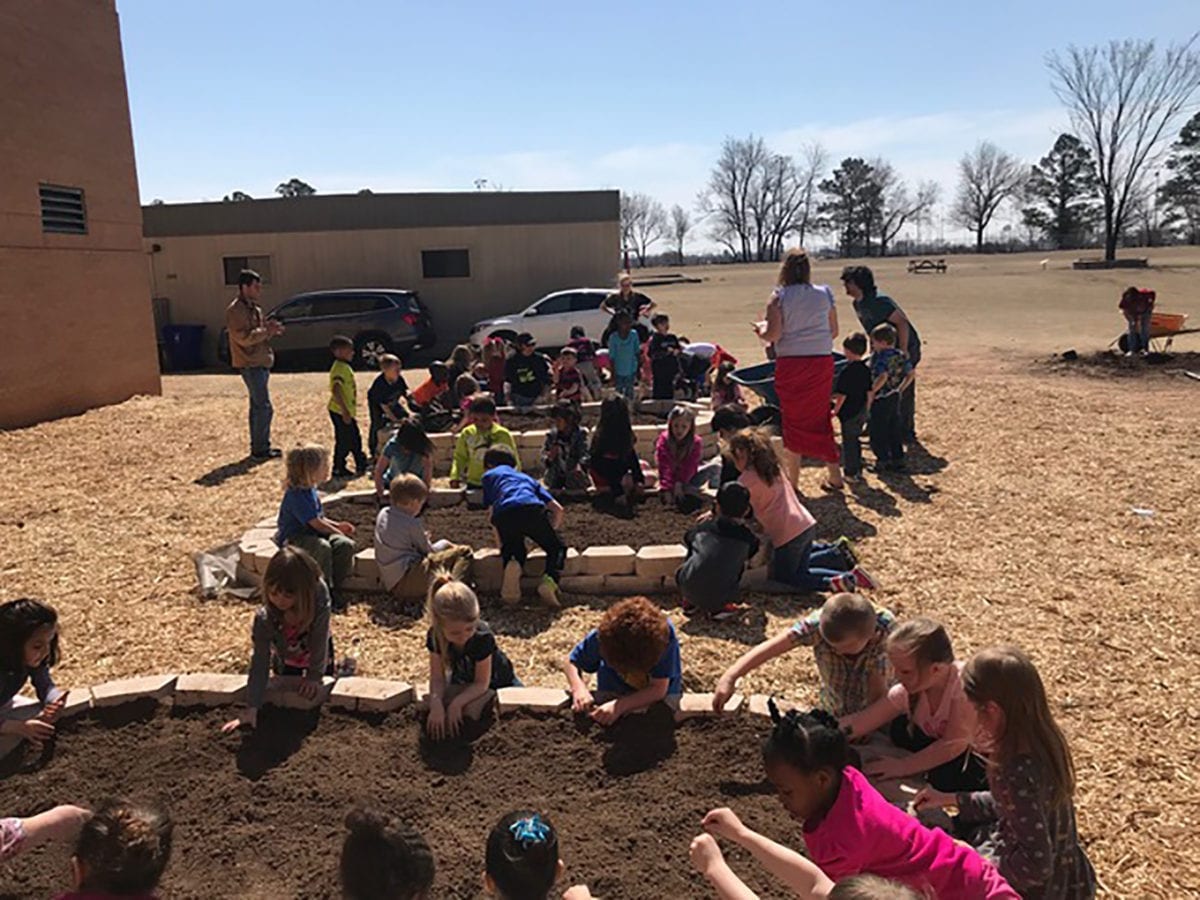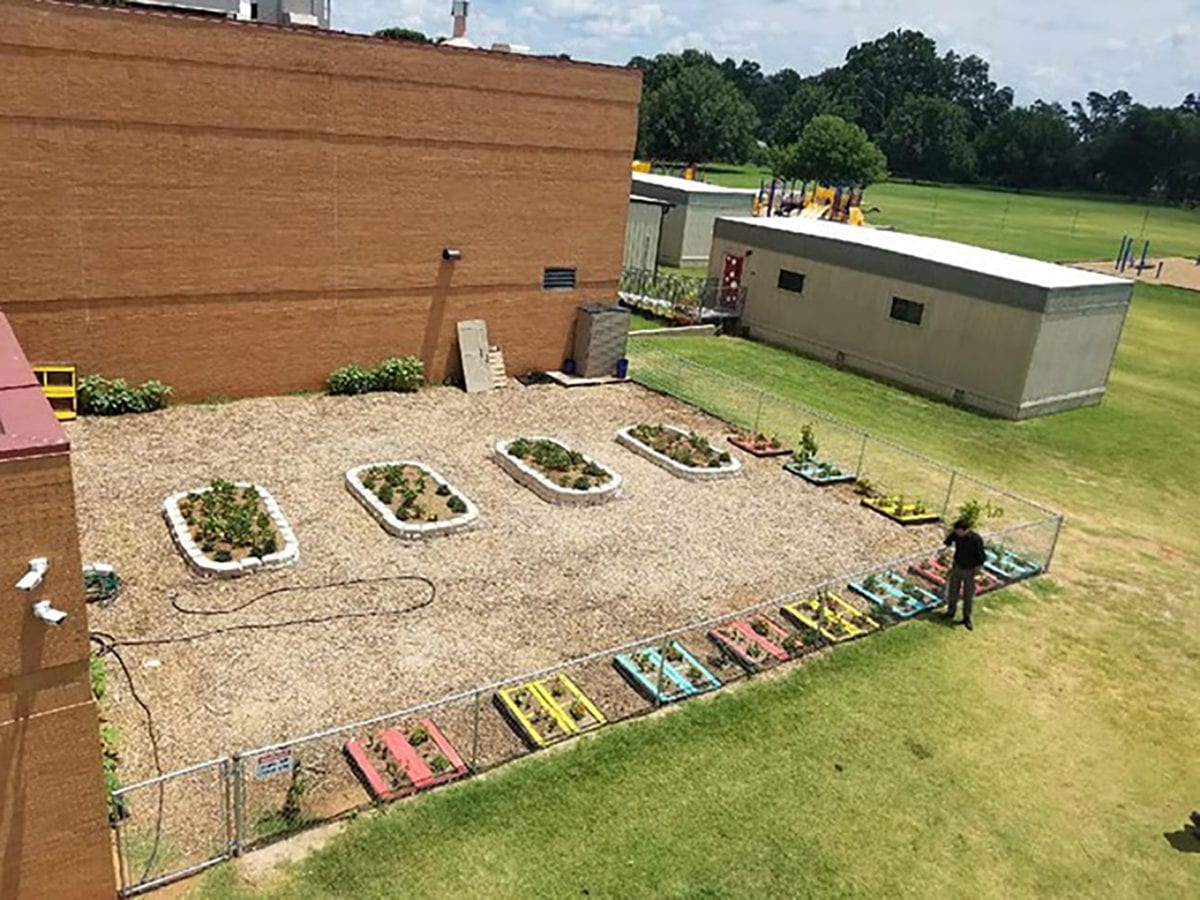Community gardens offer more than a bounty of fruits and vegetables. They also produce a sense of belonging for neighbors, an appreciation of nature for students, and partnerships between civic organizations and groups.
Oklahoma has a range of such gardens, from spaces at schools and plots in parks to neighborhood farms. They are used for educational purposes, business opportunities, community engagement, and sources for healthy food.
Allen Parleir of Oklahoma City says a community garden offers health and therapeutic benefits, social connections and knowledge about nutrition and “invites people to spend more of their lives outside.”
A community garden also “just makes for a neighborhood that feels a little more proud of itself,” says Parleir, who works with OKC’s Central Park Community Garden and is a co-founder of CommonWealth Urban Farms of Oklahoma City. “A community garden is any garden that is benefiting a community. There are lots of ways to structure it.”
Residents in a neighborhood often begin a community garden to produce healthy food. Tyler Black has helped for four years with Tulsa’s PH Community Garden, which has yielded tomatoes, peppers, eggplants, onions, apple trees, watermelons and “all the herbs you can think of,” he says. “Community gardens really click for people when they’ve eaten what they’ve grown.”
Along with a desire among residents to rejuvenate the 100-plus-year-old Crosbie Heights neighborhood near downtown, the PH Community Garden is a place to relax, reflect, recharge and learn about gardening.

Allen Parleir works with the Central Park Community Garden in Oklahoma City and is a co-founder of CommonWealth Urban Farms, a neighborhood-based farm in Oklahoma City. 
Benito Santillan adds a plant to a garden area in Oklahoma City. 
Students in Norman get ready to plant in some garden beds. All the schools in the district have some type of community garden through efforts between the schools and the Earth Rebirth nonprofit. 
The gardens in this elementary school were created through efforts between Norman schools and Earth Rebirth, a nonprofit that is focused on food, energy and water initiatives and programs.
Community gardens can serve as a classroom for students with hands-on lessons on how to grow flowers, plants, fruits and vegetables. In Norman, each public school has a community garden; the Earth Rebirth organization, a nonprofit focusing on food, energy and water programs, fostered this initiative.
“All of these gardens are succeeding in some way,” says Andrew Sartain, founder of the nonprofit.
The gardens have also produced entrepreneurial opportunities, such as students selling produce at farmers markets or hosting photoshoots amid the plants and vines as fundraisers, Sartain says.
Parleir says the keys to a successful community garden are “a few folks committed to being there no matter what.”
Dedicated volunteers and groups can expand their gardening into broader missions, such as CommonWealth. Co-founder and farm manager Elia Woods says the group formed when residents wanted to turn vacant lots into productive green spaces to benefit the community.
“People like being involved with something bigger than themselves,” Woods says. “You can see the results of what we’re doing together.”
For information about gardening, visit Oklahoma Cooperative Extension Service
at extension.okstate.edu.






















